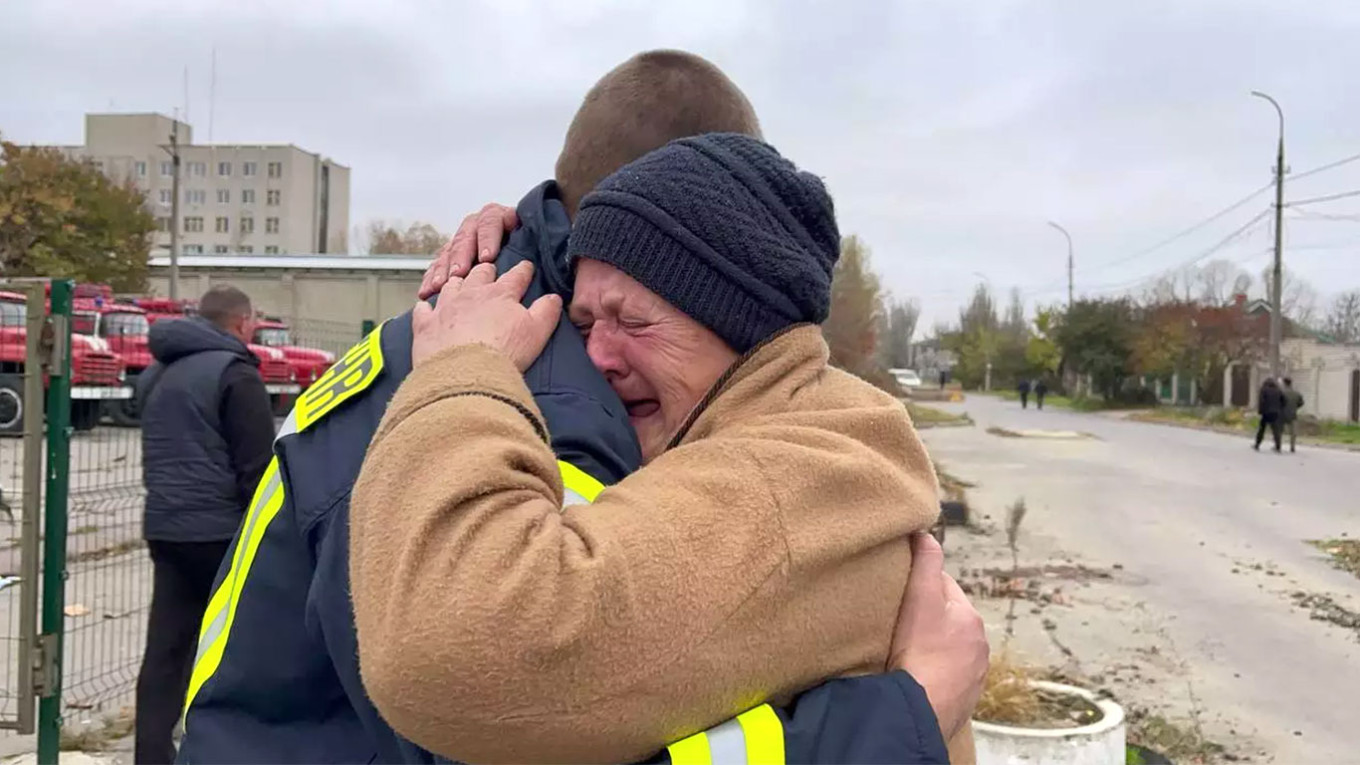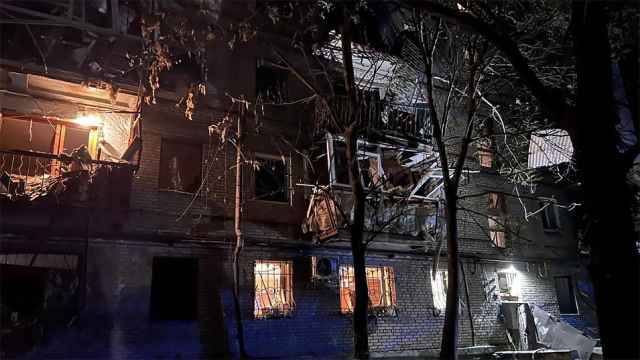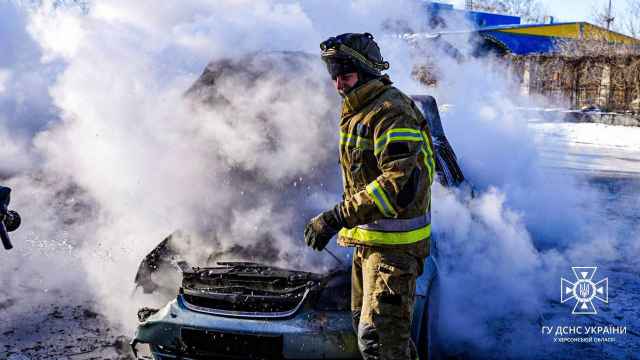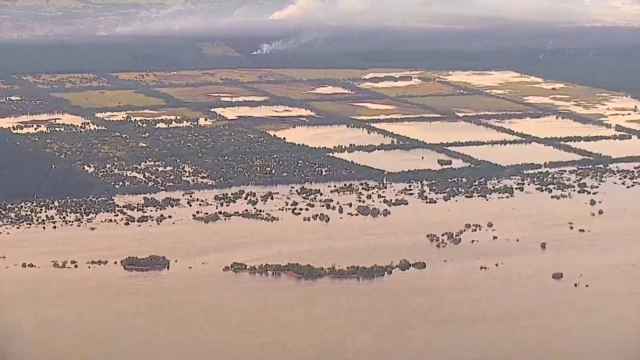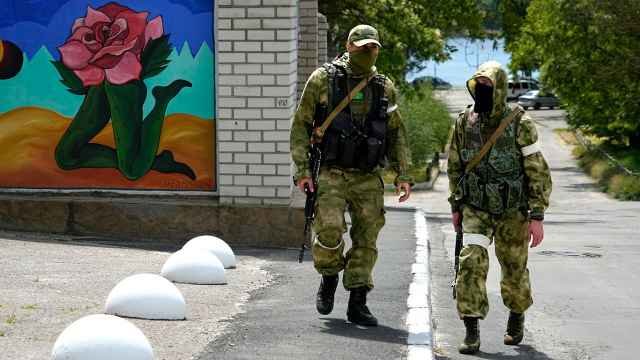Ukrainian authorities said they will soon begin voluntary evacuations from the liberated southern city of Kherson and nearby areas as Russian strikes have hammered the country’s power grid at the onset of winter.
Remaining residents of Kherson — as well as Mykolaiv 65 kilometers to the northwest — whose homes were damaged in Russia's invasion can spend “several months” in western Ukainian regions until winter temperatures subside, Deputy Prime Minister Iryna Vereshchuk said.
“They’re expected in most areas of the country,” she said during a visit to Kherson and Mykolaiv on Saturday.
“Everyone can voluntarily leave for safer regions and the state will provide them with transportation, accommodation, medical support, and so on,” Vereshchuk said in a televised conference, according to the state-run Ukrinform news agency.
Vulnerable groups such as the elderly and people with disabilities are among those to be moved to safer locations for the winter, Vereshchuk added.
She named mine clearance, providing heat and restoring electricity and water supplies as additional priorities for Ukrainian authorities following Russian forces' Nov. 11 retreat from Kherson that ended eight months of occupation.
Russia has carried out a slew of aerial strikes on Ukraine's critical infrastructure in recent weeks, leaving over 10 million people across the country without power.
Ukraine’s biggest private operator DTEK on Saturday urged Ukrainians to ease pressure on the national power grid by spending “three or four months” outside the country.
The Russian military said 115,000 residents of Kherson, which had a pre-war population of more than 280,000, had been evacuated before it withdrew from the city 10 days ago.
Kyiv has decried the evacuations as forced deportations, which Amnesty International classifies as a potential war crime.
A Message from The Moscow Times:
Dear readers,
We are facing unprecedented challenges. Russia's Prosecutor General's Office has designated The Moscow Times as an "undesirable" organization, criminalizing our work and putting our staff at risk of prosecution. This follows our earlier unjust labeling as a "foreign agent."
These actions are direct attempts to silence independent journalism in Russia. The authorities claim our work "discredits the decisions of the Russian leadership." We see things differently: we strive to provide accurate, unbiased reporting on Russia.
We, the journalists of The Moscow Times, refuse to be silenced. But to continue our work, we need your help.
Your support, no matter how small, makes a world of difference. If you can, please support us monthly starting from just $2. It's quick to set up, and every contribution makes a significant impact.
By supporting The Moscow Times, you're defending open, independent journalism in the face of repression. Thank you for standing with us.
Remind me later.


